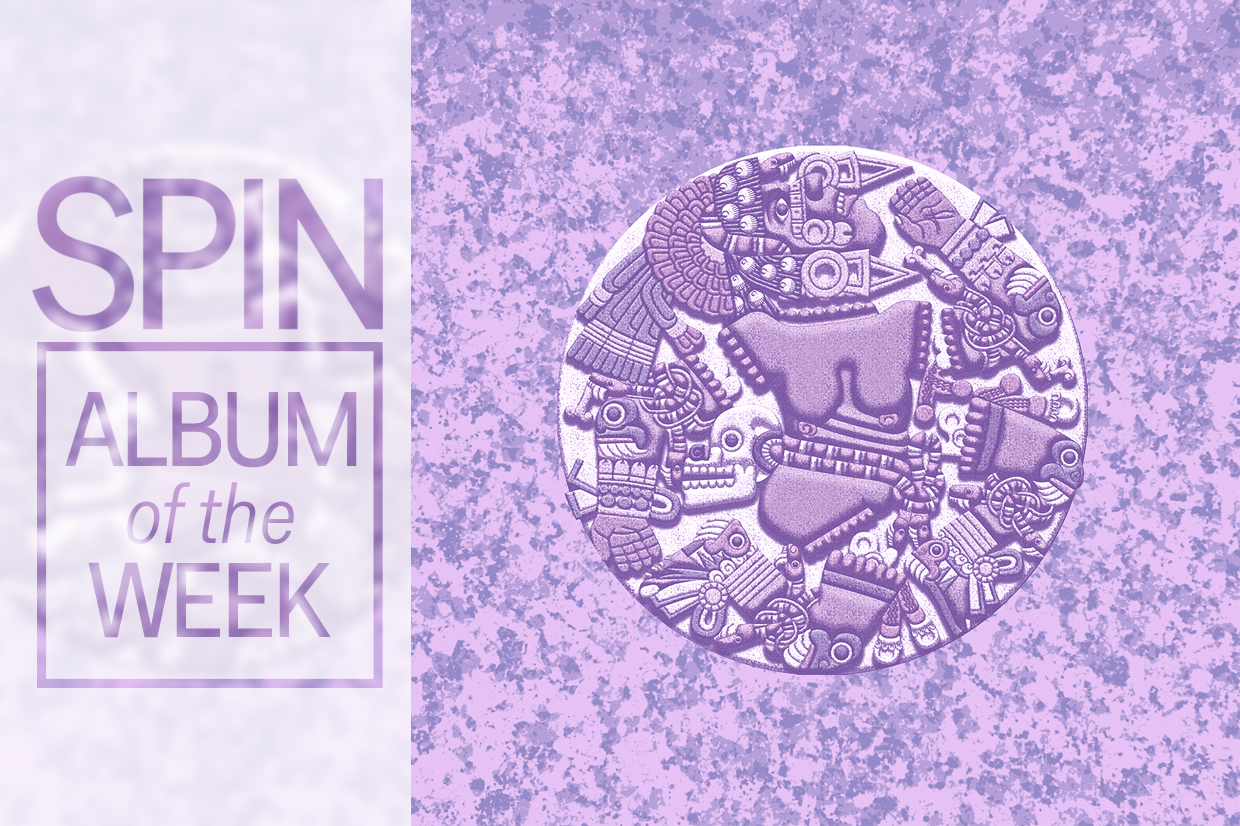Release Date: July 22, 2016
Label: Break World
Disorientation is the name of Elysia Crampton’s game. This Virginia-based producer is a genre-fusion wunderkind, and her official and unofficial catalogs are riddled with stretches where it’s deceptively easy to lose one’s bearings. House begets trap begets musique concrète begets New Age begets a DJ-tagged rap mixtape from 2006 — sometimes within the same moment, a Cuisinart of tones. American Drift, Crampton’s celebrated debut from last year, propagated a delirious sense of placelessness: raw ingredients fed fastidiously into a pan-cultural cauldron, earbuds expiring on a humid city avenue at rush hour, a half-dozen open browser windows keyed to competing YouTube streams.
A murderer’s row of rising ear-antagonists — Texan Rabit and Virginian Chino Amobi vie with Copenhagen’s Why Be and London’s Lexxi — chip in for the new Demon City, keeping Crampton’s winning streak vividly alive even as it adopts a more variegated form. Laughter abounds here, and is, in a way, the album’s unifying theme and fuel, accelerating its overall sense of urban chaos. By contrast with Drift, the sprawl of City feels crowded, corroded, downright ugly; listening, you feel like you’re inside an imaginary world, a teeming metropolis that seems to leap from the speakers.
https://youtube.com/watch?v=H1CNYzS26vI
“Children of Hell” sics boomeranging effects on late-1980s urban-pop “horns,” and cackles cruelly at its own ingenuity. Clashing, clanking ores and bleary, ascending synthesizer chords buoy the booming title tune. Interwoven Möbius strips of crepuscular vocals, African drums, and disintegrating samples comprise the sinister “Dummy Track,” while “Irreducible Horizon” juggles spine-tingling pianos and sharp, stapling drums. And with its blend of pitch shifts, orchestral quivers, and stuttered klaxons, the soaring “Esposas” offers a curious quagmire: It’s as though Cornelius and DJ Drama tag-teamed to remix a John Williams score within an inch of its life. Most provocative is “After Woman,” a haywire kaleidoscope of different paths all taken simultaneously: Jacked-up strings swing through a noise blizzard while far-flung international samples and acid-house synths punch in from everywhere.
But “Red Eyez” is a solo Lexxi joint; pinging, pointed house destined to enjoy a long, fruitful run in DJ sets, it’s an ideal closer, dispelling the apocalyptic sweeps of darkness that preceded it. Its inclusion and sequencing underscore the reality that Demon City is designed as a showcase, an emphatic act of curation. Recent musical history is packed with artists on the cultural radar offering a hand to peers further down the proverbial ladder; this practice is baked into hip-hop’s DNA, while the punk and noise undergrounds achieve the same collective altruism via compilations. By seamlessly incorporating disparate collaborations into the fabric of this City, Crampton summons a greater collective strength than they’ve exhibited on their own — and implies that, going forward, her muse could lead her anywhere, with anyone.





